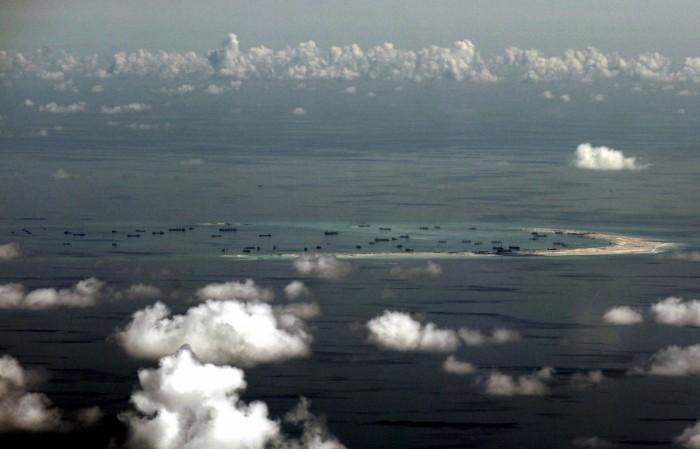Cui Tiankai, Chinese Ambassador to the United States, on Monday said that America should not obstruct efforts made by Beijing and its neighbours to establish and agree on a code of conduct in the disputed South China Sea. The Chinese diplomat made the statement as the US President Donald Trump is preparing for his first official visit to Asia.
Ambassador Cui said that America has no territorial claim in the South China Sea waters and should let other nations in the region manage their dispute in a "friendly and effective" manner.
The South China Sea dispute involves islands and maritime claims in the region among several sovereign states. China claims sovereignty over all of the South China Sea. Many international non-claimant nations, particularly the United States, however, want the South China Sea to remain as international waters, considering the fact that a high proportion of the world's trade passes through this region. India also supports freedom of navigation in the disputed waters.

China has rapidly built reefs into artificial islands which are capable of hosting military planes. The US has challenged these annexations of the islands and has advocated for a diplomatic settlement of the disputes.
The US Secretary of State Rex Tillerson this month said that China's "provocative actions" challenged international law and norms.
Beijing has been reluctant to go to the negotiating table with other nations, as efforts to forge a legally binding code of conduct between China and other members of the 10-nation Association of Southeast Asian Nations (ASEAN) has been hindered by the nation.
![President Xi Jinping [Representational image] Chinese President Xi Jinping](https://data1.ibtimes.co.in/en/full/657026/chinese-president-xi-jinping.jpg?h=450&l=50&t=40)
Singapore's Prime Minister Lee Hsien Loong last week said that the negotiations between China and other countries will possibly take years.
However, the Chinese envoy in his recent statement implied that the interference of the US was making the effort of negotiating even more difficult.
"I think it would certainly be better if others including the United States would not try to interfere in this constructive process, would not try to create obstacles to early agreement on the (code of conduct)," he told reporters at the Chinese Embassy in Washington. "I think that this is our hope. This is also the hope of the ASEAN countries."














